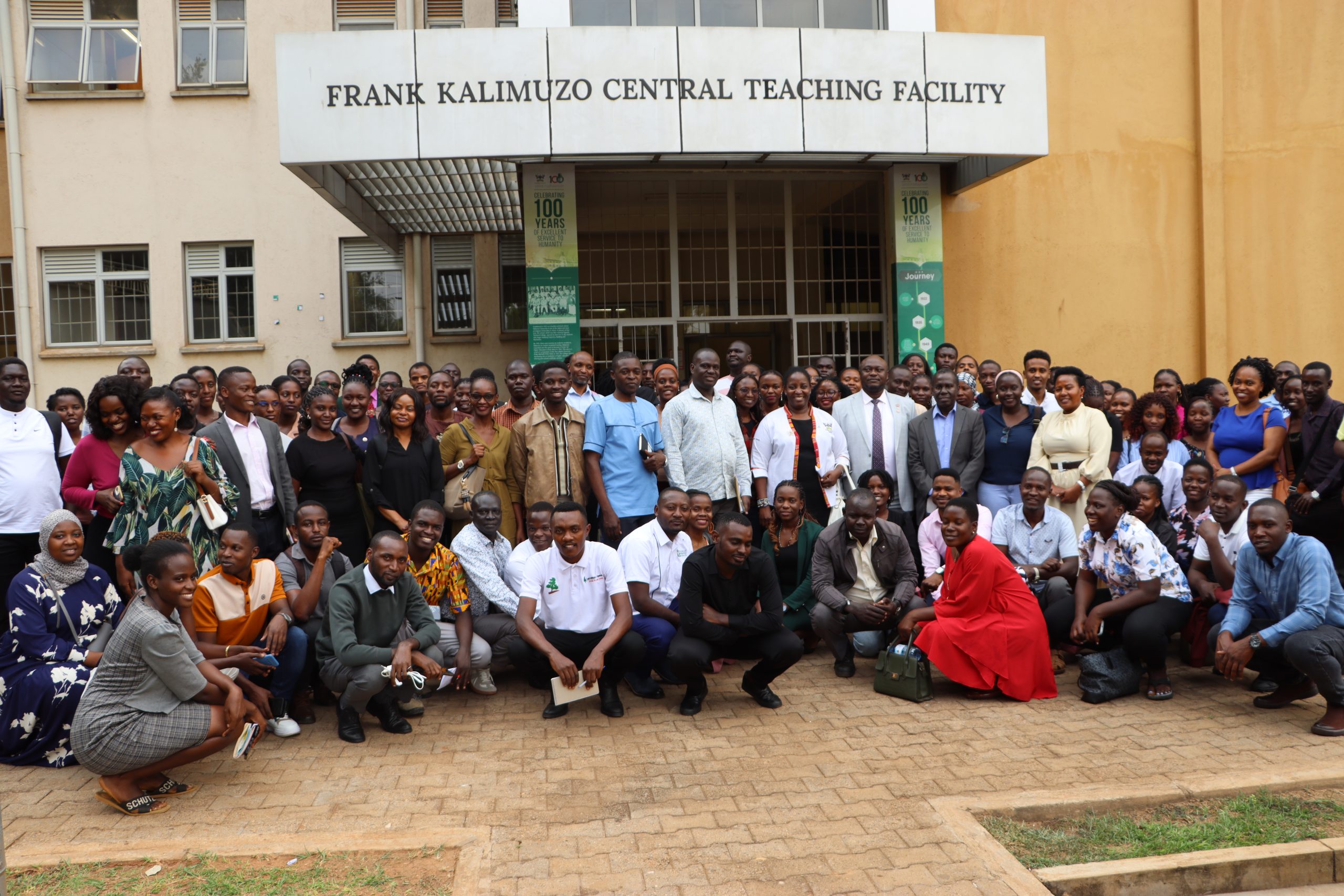The College of Humanities and Social Sciences (CHUSS) has oriented over 400 graduate students marking a significant step in realizing Makerere’s research led goal.
Professor Hellen Nambalirwa Nkabala, Principal of the College of Humanities and Social Sciences (CHUSS) started off by inking the significance of their role as graduate students in driving research and innovation. “Graduate students are crucial partners in the university’s research endeavors, working alongside faculty members to advance knowledge and promote social transformation,” She revealed.
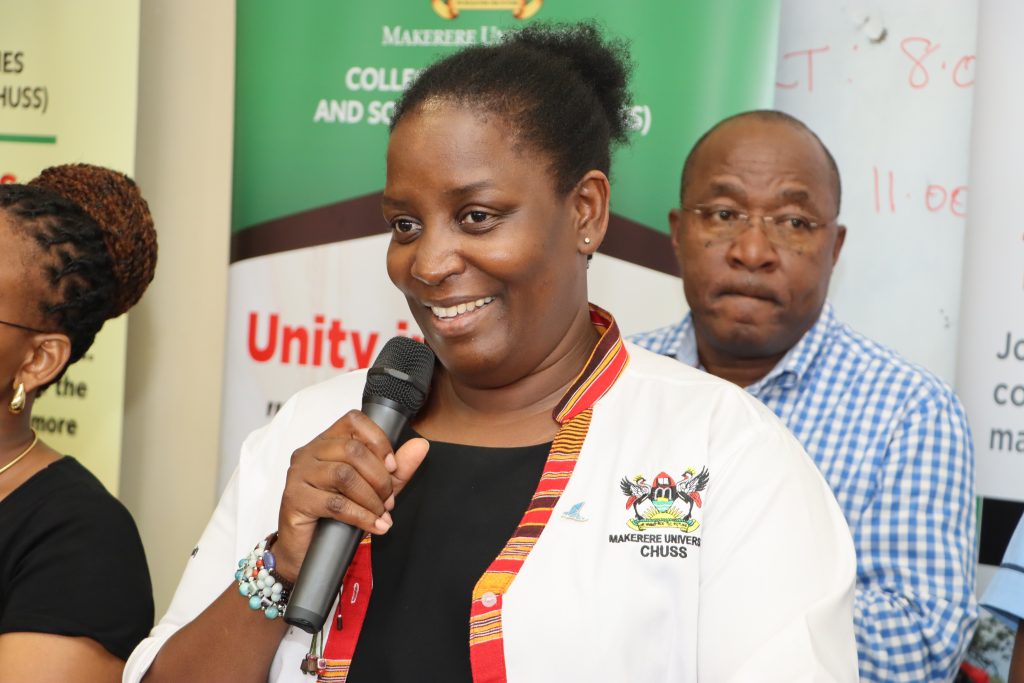
The Principal noted that graduate students have matured and are no longer undergraduates, and as such, are expected to make meaningful contributions to the growth and development of the university, as well as the broader global community.
She emphasized the importance of mentorship and co-mentorship, highlighting the college’s commitment to supporting undergraduate students and encouraging graduate students to play a key role in this process further expressing her gratitude to the students for choosing CHUSS and assured them of a safe and supportive environment.
She looked forward to seeing the impact that the graduate students would make in their respective fields and in society at large, and emphasized the college’s commitment to fostering a culture of innovation, creativity, and intellectual curiosity.
Her Deputy, Professor Eric Awich Ocen stressed that the university experience would be fruitful, productive, and transformative, enabling students to build themselves and make a meaningful difference in society. Professor Ocen encouraged students to view their time at the university as an opportunity for personal growth and development, rather than just a means to secure a livelihood.
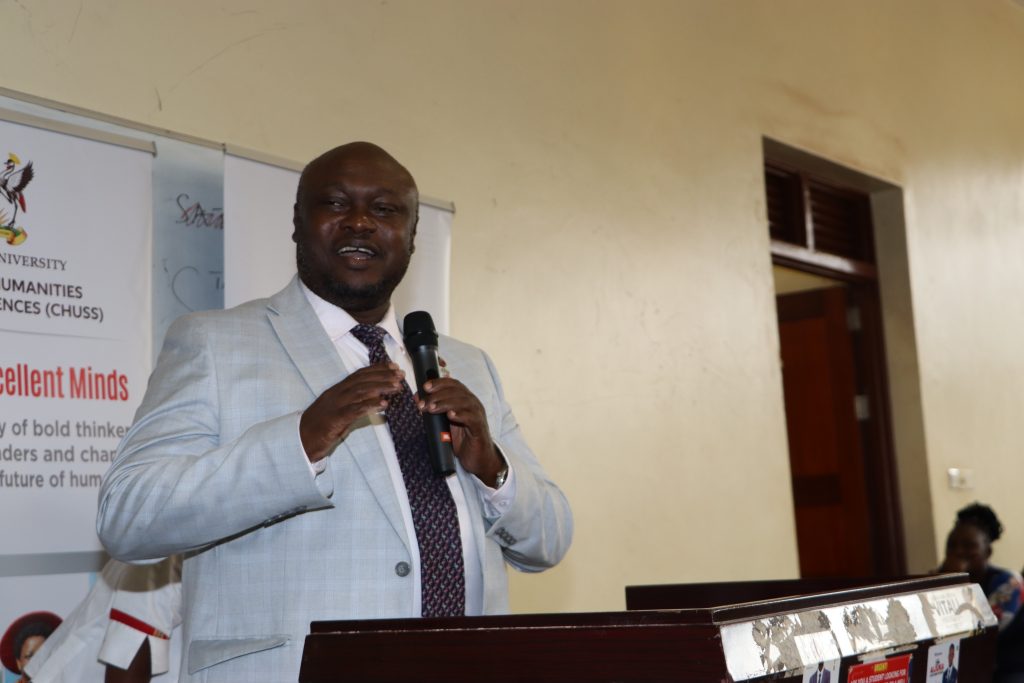
The Deputy Principal drew attention to the Graduate Handbook, Policies, Guidelines, and Procedures, a comprehensive 290-page document that outlines the policies and procedures that students need to follow.
Prof. Ocen also addressed administrative issues, noting that students who are unable to complete their program within the stipulated timeframe may need to submit a withdrawal request. He explained that this is an administrative requirement, rather than an abandonment of the program, and that students should consult with their department or the university administration if they need to take a break or withdraw from their studies.
Professor Ocen also mentioned the directorate of graduate training, which is responsible for supporting graduate students across the University.
On his part, Mr. Vincent Abigaba, the College Registrar underscored the importance of registration for graduate students, noting, it is a crucial step in becoming a legitimate student of the university. He explained that registration is done manually in the first year, first semester, and online for subsequent semesters.
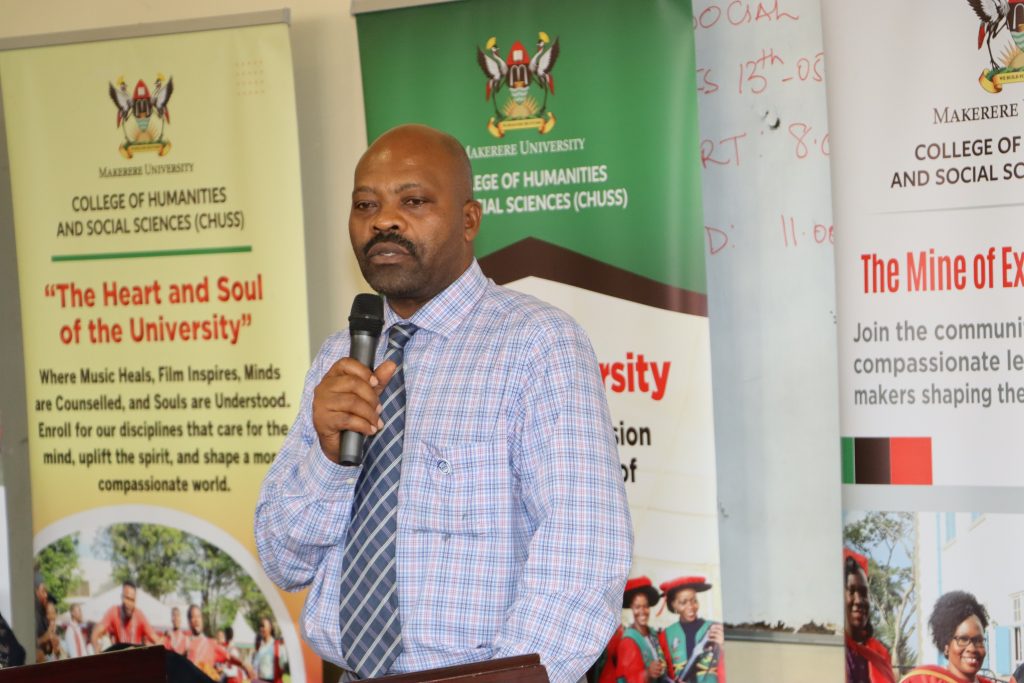
Abigaba noted that students must have their original admission letter, pay at least 60% of tuition fees, and submit required documents, including academic documents and a passport photo, to complete registration.The registrar also highlighted the significance of verifying documents during the first registration, as this is an opportunity to detect any errors or discrepancies in admission.
He warned that failure to register properly can lead to difficulties, including delayed graduation or even dismissal. Abigaba emphasized that registration is a critical step in the academic process, and that students who fail to register may not be able to access certain university services or benefits.
Abigaba also discussed academic policies, including the importance of examination permits, university IDs, and the consequences of examination malpractice. He stressed that the university takes plagiarism and other forms of academic dishonesty seriously, and that students found guilty may face penalties, including suspension or dismissal. The registrar explained that the university has a committee that handles examination malpractice cases, and that students who are accused of malpractice will be given a fair hearing before any penalties are imposed.
The registrar emphasizes the importance of academic performance, noting that students who fail to achieve a CGPA of 2.0 or higher in two consecutive semesters may be discontinued from the university. He encouraged students to take their studies seriously and seek support when needed to ensure academic success. Abigaba also reminded students that they can seek guidance from their lecturers, departmental heads, or other university staff if they are experiencing any difficulties.
For Andrew Robert from Students’ International Office emphasized the importance of obtaining a student pass to avoid deportation by immigration authorities. He explained that the student pass is a crucial document that recognizes international students as legal students in Uganda, and without it, they may face serious consequences, including deportation.
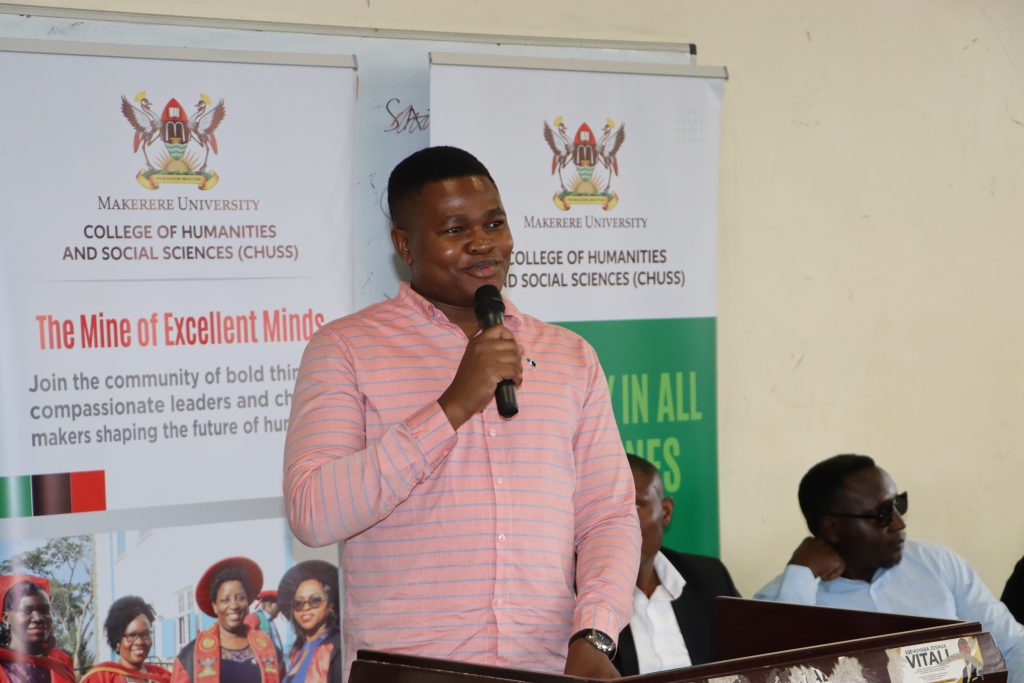
Robert outlined the procedure for obtaining a student pass, noting that students from East Africa, except for Congo and Somalia, do not need to pay any fees, while students from outside East Africa and Congo and Somalia need to pay $100. He provided his contact number, 0707-266359, for international students to reach out to him for assistance with student passes.
In addition to student pass-related issues, Robert informed students that they could also contact him for ICT-related issues, such as challenges with the student portal, university webmail, or e-learning system. He assured students that they would receive online support and encouraged them to text their queries to the provided number.
Robert also provided information about the location of the International Office, which is situated at Lincoln Flat, Level 2, A5, and the admission office, located at the Senate building, Level 3, Room 316. He encouraged students to reach out to these offices for assistance with accommodation, provisional admission, and other international student-related issues.
The orientation also featured other Makerere University members of staff who included,Dr. Samuel Ouma, who presented on Mental Health and Management Academic Stress, Richard Balikoowa took them through Safeguarding and Sexual Harassment issues, Denis Mbabazi from the Directorate of ICT Services (DICTS) and many others.
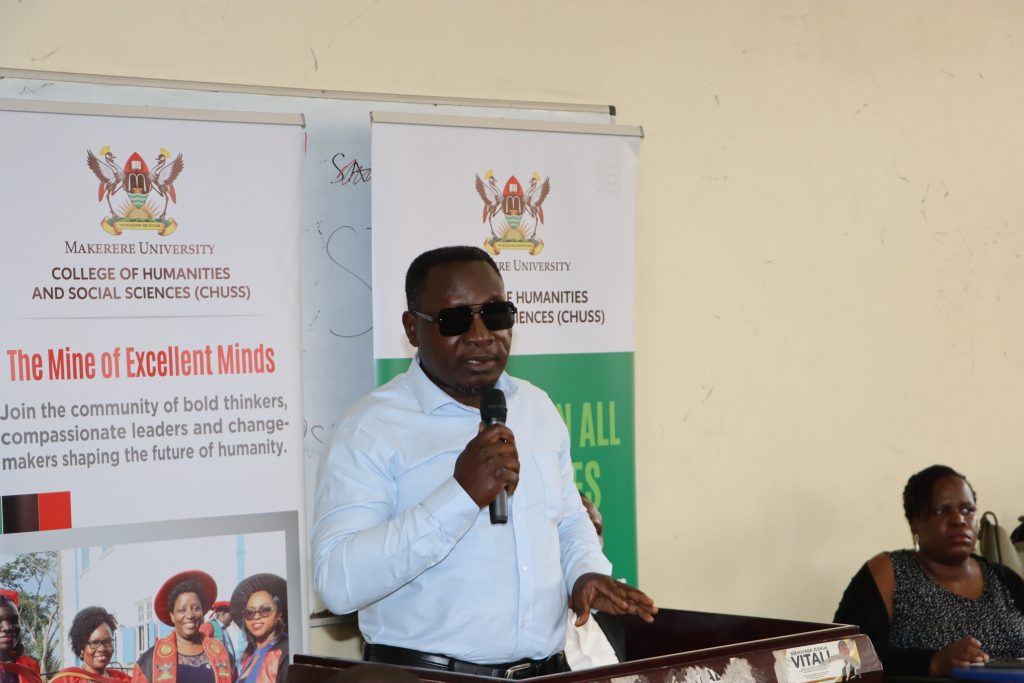
The importance of research, innovation, and academic excellence was emphasized as well the role of graduate students in driving societal change further encouraging them to take advantage of the university’s resources and support services to achieve their academic and professional goals.

